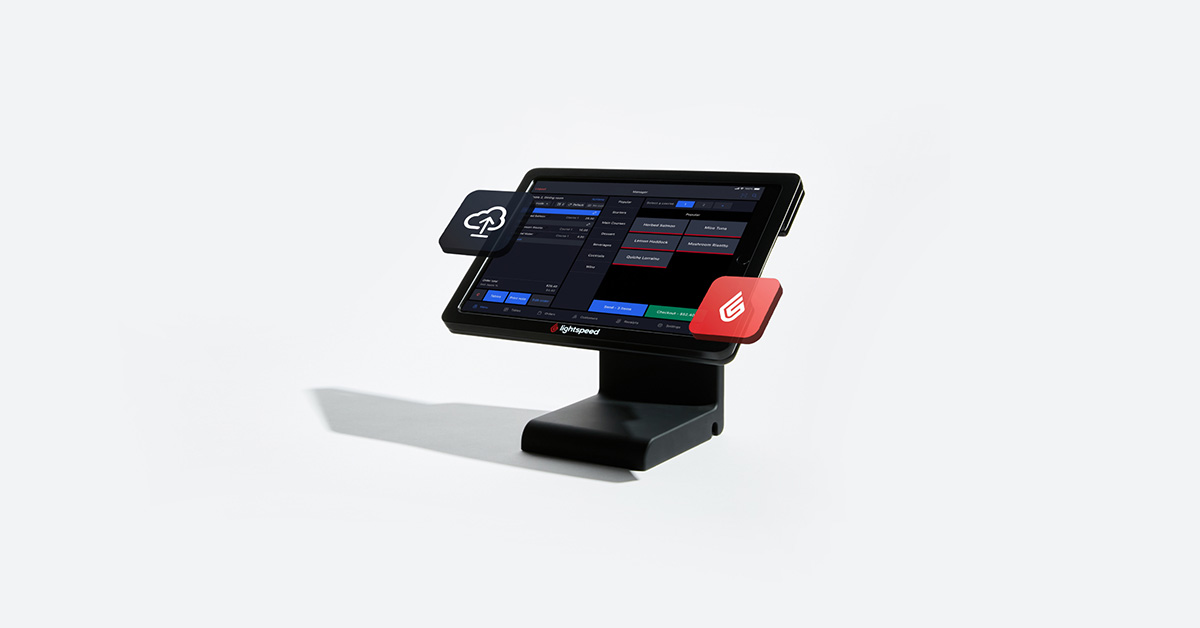
Restaurant owners in the United States must follow federal and state labor laws relating to minimum wage, overtime pay, paid time off and other employment standards. In Canada, restaurant owners must adhere to federal and provincial or territorial labor laws.
While restaurant labor laws in Canada and the US are similar, there are some important differences. Keep reading to learn more.
- Why adhering to restaurant labor laws is important
- Restaurant labor laws in the US and Canada
- Minimum wage
- Overtime pay
- Public or “stat” holidays
- Vacation pay
- Paid sick leave
Why adhering to restaurant labor laws is important

It’s critically important for restaurant owners and operators to adhere to federal and state or provincial labor laws, and not just because violating labor laws can result in steep fines and legal costs. For example:
- McDonald’s faces a $250 million lawsuit for alleged infraction of paid break laws for restaurant employees.
- Franchisee ordered to pay $155,000 for denying restaurant worker rights to a predictable work schedule and paid sick leave.
- Restaurant owner owes more than $270K in employee back pay for overtime and restaurants pay rate violations.
Violating restaurant employee rights can negatively impact worker productivity, hiring, staff retention and your reputation—all of which could cost your business more time and money than fair labor practices would. Treating your restaurant employees fairly isn’t just the right thing to do, it’s also the smart thing to do from a business perspective. Satisfied employees tend to:
- be more productive and engaged
- be loyal and motivated to help you succeed
- be less prone to absenteeism or ghosting
- encourage others in their network to work for you
- stay in the job longer
Considering that hiring and retaining enough restaurant staff is a big challenge for restaurants right now, it’s definitely in your best interest to keep your employees happy.
Restaurant labor laws in the US and Canada
In the United States, the Fair Labor Standards Act (FLSA) establishes minimum wage, overtime pay and other employment standards affecting employees in the private sector and at all levels of government.
In Canada, federal standards are set out in the Canada Labour Code. In both the US and Canada, state or province-level labor laws will usually trump the federal rules with the exception of federally regulated industries in Canada. Restaurants in Canada are not federally regulated, so we won’t talk about those standards here.
Restaurant employee minimum wage
What is the minimum wage for restaurant employees in the United States?
In the United States, the federal minimum wage is $7.25 per hour. In cases where an employee is subject to both state and federal minimum wage laws, the employee is entitled to the higher minimum wage.
But here’s where it gets complicated for restaurants with tipped employees. Employers can pay employees less than the standard minimum wage as long as the employee makes enough in tips to make up the difference. The difference between what the employee is paid and the standard minimum wage is called a tip credit.
The idea is that the employee’s base minimum wage plus their tips should add up to at least the standard minimum wage. Federal law sets the minimum base wage at $2.13 per hour, but many states mandate a higher level. In some states, employers must pay tipped employees the full state minimum wage before tips.
What is the minimum wage for restaurant employees in Canada?
Restaurants in Canada generally follow the minimum wage rates set by the province or territory. Tipped employees are paid the standard provincial minimum wage everywhere except Quebec, where minimum wage for restaurant or hotel employees who receive tips is $12.20 an hour.
Overtime pay for restaurant employees
Overtime pay in the United States
Under the FLSA, restaurants must provide overtime pay to hourly and nonexempt salary staff who work more than 40 hours per workweek. Overtime rates are defined as at least one and a half times the employee’s standard rate of pay. Here are some key things to know about overtime laws in the United States:
- Many states have their own overtime laws, some of which come with unique exceptions.
- States that do not have their own overtime rules default to the federal law.
- In the event that there are conflicting overtime laws between a state and the federal government, the employer must abide by the law that is more beneficial to the employee.
Overtime pay in Canada
Federal overtime rules in Canada set a general threshold of 40 hours per week, but this threshold can vary from province to province. Think of the federal overtime threshold as a jumping off point for provincial policy makers. Some industries and workers may also be exempt from overtime rules. Here’s where you can get the most up-to-date information about overtime pay in your province or territory:
Tips for controlling overtime hours in your restaurant
Overtime is expensive—that’s why most restaurants try to avoid work schedules or scheduling mishaps that can tip employees over the threshold. Here are a few tips for limiting overtime in your restaurant:
- Set a rule that employees can’t swap shifts without approval from a manager or supervisor. This way you can make sure shift changes won’t affect your labor costs.
- Cross-train your employees so they can provide support for a variety of roles. For example, training your waitstaff on the bar so they can fill in for bartenders in a pinch.
- Hire seasonal employees or temporary workers for peak seasons to give your regular staff support and ensure they don’t work too much overtime.
- Try using smart scheduling software that alerts you when an employee is either at risk or scheduled for 40 hours or more over a seven-day span.
- Get advanced insights to schedule smarter. For example, if you’re using Lightspeed restaurant POS and payments, you can use server scorecards to compare sales, turn times and voids to identify who and how many servers should be on your busiest shifts. You can also use these insights to identify where each of your servers could use some coaching, so you can build a stronger overall front of house (FOH) team.

By implementing these strategies, you can make sure your employees aren’t being overworked, and that you’re keeping your labor costs under control and within budget.
Public holidays
Do restaurants pay time and a half on holidays?
In the United States, there aren’t any state or federal restaurant labor laws that require restaurants to give employees paid time off on public holidays, nor to pay time and a half. Holidays are generally considered regular working days and employees receive their usual pay if they worked that day, or no payment if they did not.
In Canada, employees are entitled to paid time off on New Year’s Day, Good Friday, Canada Day, Labour Day and Christmas Day. If your restaurant stays open on one of these public holidays, or “stat holidays”, you will probably need to pay workers time and a half. Be sure to check the rules for your region, as provinces have their own eligibility criteria or exclusions.
How to show your restaurant employees love over the holidays
While it’s not mandatory for you to give staff paid time off, there are a few ways you can show your restaurant employees some love over the holidays. Here’s a few suggestions your staff will appreciate:
- Ask your employees if they’d like to work on that day. Whenever possible, only schedule the people who consent to work on a holiday.
- Close the restaurant for a day to give everyone a well-deserved break.
- Offer a special holiday staff meal to employees that work on that day.
- Offer a holiday bonus for major holidays, such as Christmas, New Years Day and Thanksgiving.
- Hire some temporary or part-time staff to help cover busy holiday months.
Vacation pay
Vacation pay in the United States

There are no federal or state restaurant employment laws that require an employer to give their employees paid vacation, or in fact pay for any time not worked. These benefits are matters of agreement between an employer and an employee
That said, most salaried positions come with at least some vacation days per year. For hourly employees, which most of your restaurant employees probably are, offering at least some paid vacation time benefits both your employees and your business in several ways, including:
- improved morale and motivation
- less frequent absenteeism
- competitive advantage when you’re looking to hire
- improved employee retention
Consider letting restaurant employees “bank” vacation time over their worked hours. For every 40 hours they work, they get a few hours of vacation time. You can track employee hours in your restaurant point of sale (POS) to make sure they get the vacation pay they’ve earned.
Vacation pay in Canada
In Canada, employees are entitled to a minimum of two weeks of vacation time per year. Vacation pay is banked (earned on each paycheck) by employees throughout the year, and employers calculate their vacation pay based on a percentage of their yearly earnings. Check your province’s guidelines to ensure you’re following restaurant employment laws for your region.
Sick pay
Restaurant labor laws pertaining to paid sick leave is another important consideration for restaurant owners and operators. In the United States, there are no federal laws and only some state laws regarding sick pay for restaurant employees.
In Canada, the vast majority of workers are subject to provincial restaurant employment laws relating to sick leave. Very few provinces require business owners to offer any paid sick leave at all, but you should consider offering at least some paid sick leave. If the COVID-19 pandemic taught us anything, it’s how quickly germs can spread.
Besides getting other employees sick, sick employees who come to work can contaminate food and make your guests sick. Roughly 40% of foodborne illness outbreaks in the US are traced back to a sick restaurant employee. This is not good for your guests, other staff or for your restaurant’s reputation.
The bottom line
Adhering to federal and state or provincial restaurant labor laws, while also juggling scheduling for your needs and calculating payroll, can be really complex. The good news is that there are strategies and tools you can use to make it (a lot) easier to manage.
With Lightspeed’s restaurant POS and management system, you get insights that help you better understand your staffing needs and staff performance. Our smart scheduling software partners integrate seamlessly with Lightspeed to help you run your business at full capacity. Talk to an expert to see if Lightspeed is right for you.

News you care about. Tips you can use.
Everything your business needs to grow, delivered straight to your inbox.


